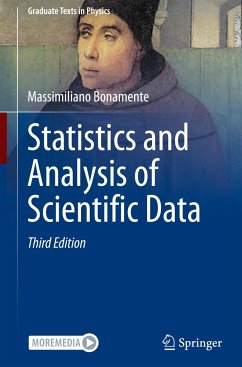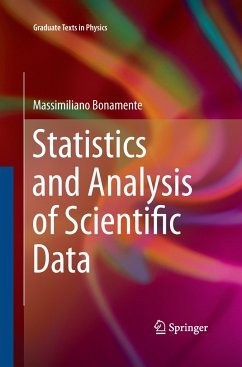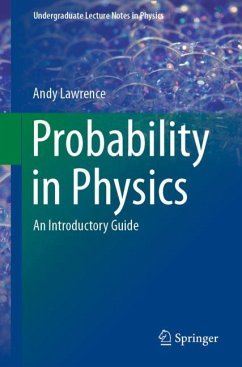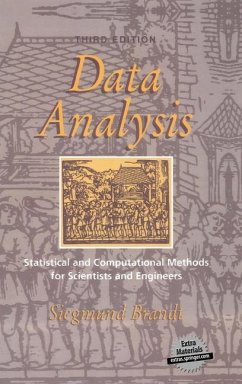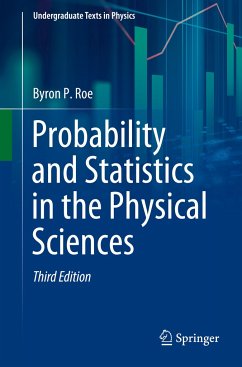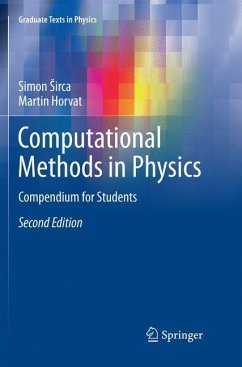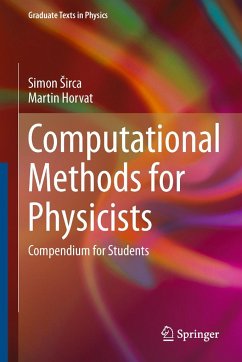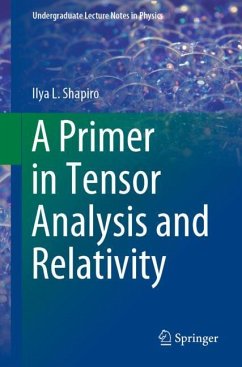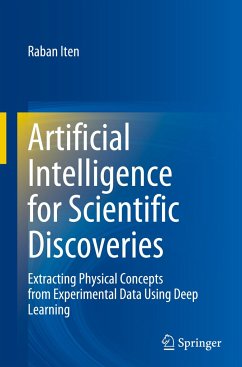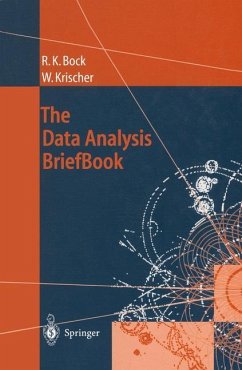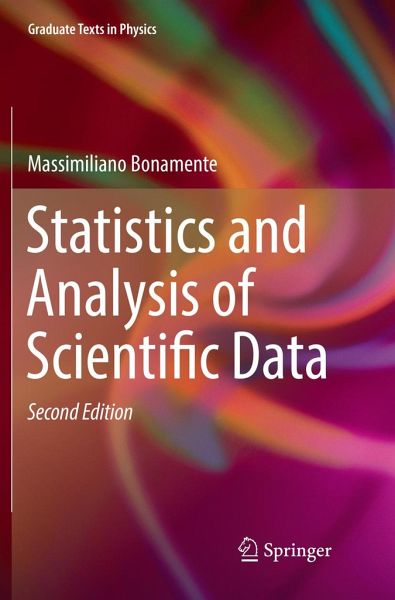
Statistics and Analysis of Scientific Data
Versandkostenfrei!
Versandfertig in 6-10 Tagen
38,99 €
inkl. MwSt.
Weitere Ausgaben:

PAYBACK Punkte
19 °P sammeln!
The revised second edition of this textbook provides the reader with a solid foundation in probability theory and statistics as applied to the physical sciences, engineering and related fields. It covers a broad range of numerical and analytical methods that are essential for the correct analysis of scientific data, including probability theory, distribution functions of statistics, fits to two-dimensional data and parameter estimation, Monte Carlo methods and Markov chains.Features new to this edition include:- a discussion of statistical techniques employed in business science, such as multi...
The revised second edition of this textbook provides the reader with a solid foundation in probability theory and statistics as applied to the physical sciences, engineering and related fields. It covers a broad range of numerical and analytical methods that are essential for the correct analysis of scientific data, including probability theory, distribution functions of statistics, fits to two-dimensional data and parameter estimation, Monte Carlo methods and Markov chains.
Features new to this edition include:
- a discussion of statistical techniques employed in business science, such as multiple regression analysis of multivariate datasets.
- a new chapter on the various measures of the mean including logarithmic averages.
- new chapters on systematic errors and intrinsic scatter, and on the fitting of data with bivariate errors.
- a new case study and additional worked examples.
- mathematical derivations and theoretical background material have been appropriately marked, to improve the readability of the text.
- end-of-chapter summary boxes, for easy reference.
As in the first edition, the main pedagogical method is a theory-then-application approach, where emphasis is placed first on a sound understanding of the underlying theory of a topic, which becomes the basis for an efficient and practical application of the material. The level is appropriate for undergraduates and beginning graduate students, and as a reference for the experienced researcher. Basic calculus is used in some of the derivations, and no previous background in probability and statistics is required. The book includes many numerical tables of data, as well as exercises and examples to aid the readers' understanding of the topic.
Features new to this edition include:
- a discussion of statistical techniques employed in business science, such as multiple regression analysis of multivariate datasets.
- a new chapter on the various measures of the mean including logarithmic averages.
- new chapters on systematic errors and intrinsic scatter, and on the fitting of data with bivariate errors.
- a new case study and additional worked examples.
- mathematical derivations and theoretical background material have been appropriately marked, to improve the readability of the text.
- end-of-chapter summary boxes, for easy reference.
As in the first edition, the main pedagogical method is a theory-then-application approach, where emphasis is placed first on a sound understanding of the underlying theory of a topic, which becomes the basis for an efficient and practical application of the material. The level is appropriate for undergraduates and beginning graduate students, and as a reference for the experienced researcher. Basic calculus is used in some of the derivations, and no previous background in probability and statistics is required. The book includes many numerical tables of data, as well as exercises and examples to aid the readers' understanding of the topic.





